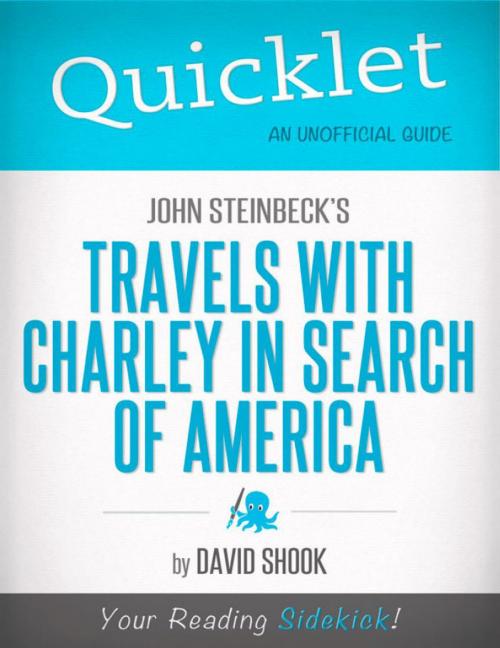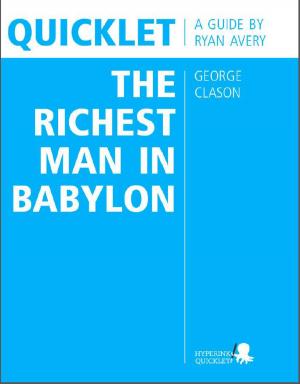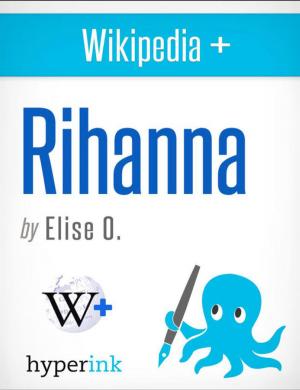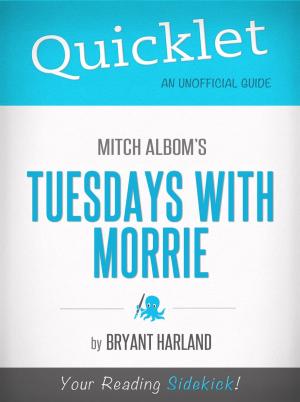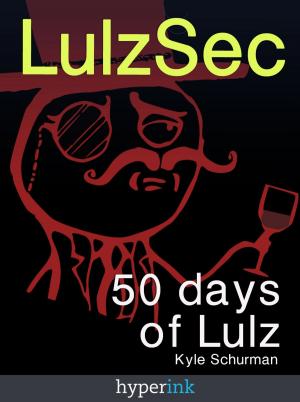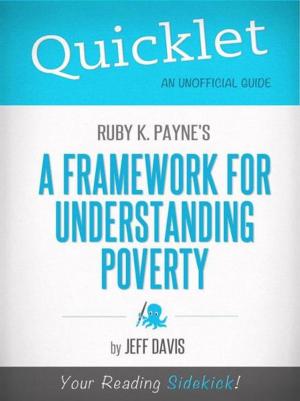Quicklet on John Steinbeck's Travels with Charley in Search of America (CliffNotes-like Summary)
Nonfiction, Reference & Language, Study Aids, Book Notes, Art & Architecture, General Art| Author: | David Shook | ISBN: | 9781614641599 |
| Publisher: | Hyperink | Publication: | February 24, 2012 |
| Imprint: | Hyperink | Language: | English |
| Author: | David Shook |
| ISBN: | 9781614641599 |
| Publisher: | Hyperink |
| Publication: | February 24, 2012 |
| Imprint: | Hyperink |
| Language: | English |
ABOUT THE BOOK
I came to John Steinbeck’s work through his novella The Pearl, a diminutive but dark allegory about a Native American pearl diver whose discovery of an enormous pearl hurls him and his family into a world of greed and its disastrous consequences. From The Pearl, I found Cannery Row, my favorite Steinbeck novel.
From its first sentence, Steinbeck’s descriptions vibrate with the same energy and poetry that his eclectic cast of outcasts embody as they throw unauthorized parties and philosophize with Doc, based on Steinbeck’s real-life friend Ed Ricketts, on 1920s Monterey Bay, the American sardine capital at that time. “Cannery Row in Monterey in California is a poem, a stink, a grating noise, a quality of light, a tone, a habit, a nostalgia, a dream.”
I turned next to Steinbeck’s nonfiction, attracted to Travels with Charley: In Search of America because of my own experiences on Routes 10 and 40, mostly heading west towards California, or back to Oklahoma or Texas to wait until I could go again. Like Steinbeck with his standard poodle Charley, I drove with my steadfast companion, Okie Doke, a considerably smaller pooch.
MEET THE AUTHOR
David Shook studied endangered languages in Oklahoma and poetry at Oxford. He's published essays about dancing with the President of Burundi and being detained in Equatorial Guinea, and his poetry, translations, and book reviews regularly appear in magazines like Ambit, Poetry, and World Literature Today. His most recent translations include Mario Bellatin’s novella Shiki Nagaoka: A Nose for Fiction, Roberto Bolano’s 1976 manifesto “Leave Everything, Again,” and the selected love poems of Isthmus Zapotec poet Victor Teran. His current writing projects include Kilometer Zero, a covertly filmed documentary about lost Equatoguinean poets, a miniature encyclopedia, and a collection of travel essays. Shook lives with his wife and chihuahua in Los Angeles, where he edits Molossus. He’s a competitive foosballer, miniature book collector, banjolele picker, and aspiring rapper. His moustache is sponsored by Oregon Wild Hair Moustache Wax, the most literary moustache wax in the world.
EXCERPT FROM THE BOOK
Steinbeck won the Nobel Prize for Literature in 1962, two years after his driving tour across the continent and just months after the publication of Travels with Charley. His winning propelled Travels with Charley to the number one spot on the New York Times Best Seller List. In his acceptance speech he lauded “man’s proven capacity for greatness,” and challenged all writers to celebrate that greatness in their written work.
For Steinbeck, that was literature’s ultimate purpose, and he compellingly articulated his opinion throughout his speech:
“I hold that the writer who does not believe in the perfectibility of man has no dedication nor any membership in literature.”
Born in Salinas, California on 27 February 1902, John Steinbeck witnessed man’s capacity for greatness in the fertile farmlands surrounding the agricultural hub town. While working those fields himself—notably in the company town of Spreckels, which boasted the world’s largest beet sugar processing plant—he witnessed many of man’s less noble attributes, including corporate and individual greed, the poor treatment of migrant workers, and the degradation of the physical environment, all themes he explored in his work.
Buy a copy to keep reading!
ABOUT THE BOOK
I came to John Steinbeck’s work through his novella The Pearl, a diminutive but dark allegory about a Native American pearl diver whose discovery of an enormous pearl hurls him and his family into a world of greed and its disastrous consequences. From The Pearl, I found Cannery Row, my favorite Steinbeck novel.
From its first sentence, Steinbeck’s descriptions vibrate with the same energy and poetry that his eclectic cast of outcasts embody as they throw unauthorized parties and philosophize with Doc, based on Steinbeck’s real-life friend Ed Ricketts, on 1920s Monterey Bay, the American sardine capital at that time. “Cannery Row in Monterey in California is a poem, a stink, a grating noise, a quality of light, a tone, a habit, a nostalgia, a dream.”
I turned next to Steinbeck’s nonfiction, attracted to Travels with Charley: In Search of America because of my own experiences on Routes 10 and 40, mostly heading west towards California, or back to Oklahoma or Texas to wait until I could go again. Like Steinbeck with his standard poodle Charley, I drove with my steadfast companion, Okie Doke, a considerably smaller pooch.
MEET THE AUTHOR
David Shook studied endangered languages in Oklahoma and poetry at Oxford. He's published essays about dancing with the President of Burundi and being detained in Equatorial Guinea, and his poetry, translations, and book reviews regularly appear in magazines like Ambit, Poetry, and World Literature Today. His most recent translations include Mario Bellatin’s novella Shiki Nagaoka: A Nose for Fiction, Roberto Bolano’s 1976 manifesto “Leave Everything, Again,” and the selected love poems of Isthmus Zapotec poet Victor Teran. His current writing projects include Kilometer Zero, a covertly filmed documentary about lost Equatoguinean poets, a miniature encyclopedia, and a collection of travel essays. Shook lives with his wife and chihuahua in Los Angeles, where he edits Molossus. He’s a competitive foosballer, miniature book collector, banjolele picker, and aspiring rapper. His moustache is sponsored by Oregon Wild Hair Moustache Wax, the most literary moustache wax in the world.
EXCERPT FROM THE BOOK
Steinbeck won the Nobel Prize for Literature in 1962, two years after his driving tour across the continent and just months after the publication of Travels with Charley. His winning propelled Travels with Charley to the number one spot on the New York Times Best Seller List. In his acceptance speech he lauded “man’s proven capacity for greatness,” and challenged all writers to celebrate that greatness in their written work.
For Steinbeck, that was literature’s ultimate purpose, and he compellingly articulated his opinion throughout his speech:
“I hold that the writer who does not believe in the perfectibility of man has no dedication nor any membership in literature.”
Born in Salinas, California on 27 February 1902, John Steinbeck witnessed man’s capacity for greatness in the fertile farmlands surrounding the agricultural hub town. While working those fields himself—notably in the company town of Spreckels, which boasted the world’s largest beet sugar processing plant—he witnessed many of man’s less noble attributes, including corporate and individual greed, the poor treatment of migrant workers, and the degradation of the physical environment, all themes he explored in his work.
Buy a copy to keep reading!
